Fleurs du Mal Magazine


.jpg)
Adriaan en de anderen
Een toekomstroman waarin de literatuur wordt gered
en het Huis van Oranje tot bloei komt
door Merel van der Gracht
dertien
De Rode Jehova’s
Koosje lag te soezen op Luuds tekentafel. Luud was druk bezig met de nieuwe tekeningen van zijn witkarren.
‘Schiet het op?’ vroeg Koosje verveeld.
‘Het nieuwe prototype is af. Met windpropeller.’
‘Waar is dat ding goed voor?’
‘Als het waait, kan het achterlicht branden op windenergie.’
‘En nu?’
‘Dat is al jaren de vraag.’
‘Als ik jou was, zou ik ermee naar het stadhuis gaan,’ zei Koosje. ‘Tenslotte moet je het voor je plannen van de ambtenaren hebben.’
‘Denk je dat Mandarijn het witkarrenplan een nieuwe kans geeft?’
‘Waarom niet? Met hem kun je alle kanten op als hij denkt dat het goed is voor het volk. Nee heb je, ja kun je krijgen.’
‘Je hebt gelijk,’ zei Luud die onmiddellijk weer in vuur en vlam stond. ‘Ik ga er direct heen. Binnen een paar uur ben ik terug.’
Koosje gaapte.
Met de tekenrol onder de arm stapte Luud naar het stadhuis.
De portier verwees hem naar de heer ingenieur Voeltjes.
Op de tweede verdieping vond hij de heer ingenieur Voeltjes, een kalende heer, met een gekweld uiterlijk waarop men kon aflezen dat zijn hoge functie geen kattenpis was, een baan die hem veel hoofdbrekens bezorgde.
‘U zult wel eens eerder van mijn witte fietsenplan en witkarrenplan hebben gehoord,’ begon Luud.
‘Is me niets van bekend,’ zei ambtenaar Voeltjes koeltjes.
Luud liet hem de tekeningen zien en vouwde de wat vergeelde krantenpagina’s open.
‘Ouwe troep,’ zei ingenieur Voeltjes met enig afgrijzen. ‘Dat is van ver voor mijn tijd. Dat moet nog van voor het Bakellende-tijdperk zijn.’
‘Van nog veel eerder,’ zei Luud. ‘De provotijd.’
‘Nooit van gehoord.’
‘Een dikke vijftig jaar geleden,’probeerde Luud. ‘Flowerpower, waterpijpen, de rellen op de Dam. Die tijd.’
‘Dat is dan een eeuw of zo voor mijn tijd. Toen ik op school zat, was geschiedenis als leervak al afgeschaft. Ballast.’
‘Mijn witte fietsenplan was heel revolutionair,’ probeerde Luud. ‘Toen.’
‘Toen,’ herhaalde de heer Voeltjes met afgrijzen. ‘Dus uit de tijd. Legt u mij eens uit wat uw échte bedoelingen zijn. Wat bedoelt u met revolutie?’
In enthousiaste bewoordingen ontvouwde Luud zijn herziene plan voor witte fietsen als hét stadsvervoermiddel en de oplossing van het fileprobleem op alle belangrijke wegen.
‘Allemaal fietsen waar maar één persoon op past?’ vroeg Voeltjes met enig afgrijzen.
‘Ja. Iedereen zo vrij als een vogeltje.’
‘Ik zie er niets in,’ zei de hooggeplaatste ambtenaar. ‘Het klinkt me allemaal veel te individualistisch. Ik vind het niets voor een maatschappij waarin we juist streven naar de inpassing van het individu in de gemeenschap. Mijn plan is de persoonlijke vervoersmiddelen af te schaffen. Fietsen in je eentje bevordert het individualisme. Iedereen alleen op een fiets, dat is tegen de tijdgeest. U weet dat de regering er voor is dat we alles samen gaan doen?’
‘Ik dacht juist dat het heel goed is voor de gemeenschap als iedereen gelukkig is,’ zei Luud.
‘Ik vind uw plannen subversief,’ zei de heer Voeltjes. ‘U met uw gepraat over revolutie, dat kan niet door de beugel.’ Hij drukte op de intercom.
Instinctief begreep Luud dat Voeltjes de Rode Jehova’s wilde waarschuwen, de pas opgerichte geheime politie, agenten die de voet net zo dwars voor de deur konden zetten als vroeger de Getuigen van Jehova, de nu verboden sekte. De Rode Jehova’s werden ingezet tegen alles wat vies en voos was en tegen alles wat de macht van premier Mandarijn en zijn marionetten kon ondermijnen.
Impulsief graaide Luud zijn spullen van tafel en vluchtte het stadhuis uit.
Net op tijd.
Hoofdstuk 13 – Woensdag 31 maart 2010 (vervolg donderdag)
.jpg)
Adriaan en de anderen door Merel van der Gracht
verschijnt op 7 mei 2010 bij Uitgeverij Compaan in Maassluis
ISBN: 978-94-903740-6-8, aantal pagina’s: 288, prijs: € 17,90
E-mail: merelvandergracht X kempis.nl ( X = @ )
kempis poetry magazine
More in: -Adriaan en de Anderen, Merel van der Gracht
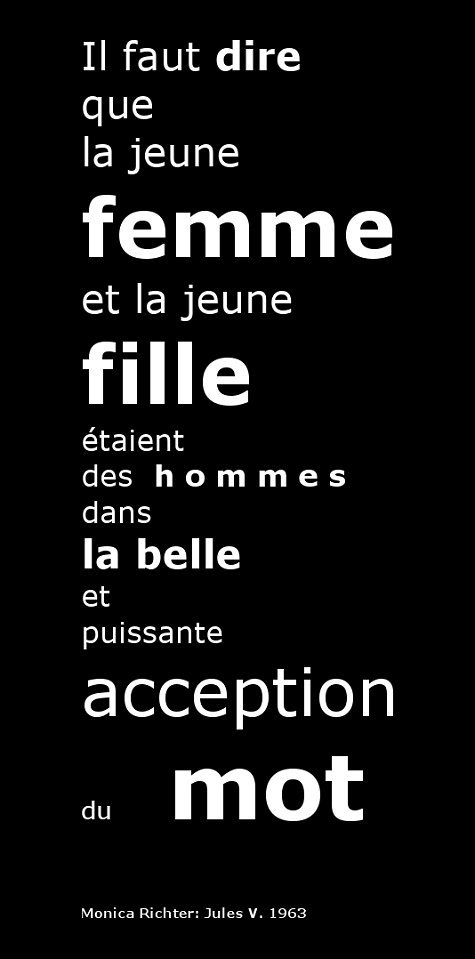
monica richter: il faut dire -jules v. 1963

monica richter: no

monica richter: allow me – oscar w. 1963

monica richter: nevermore – paul v. 1974
Monica Richter poetry – kempis poetry magazine
More in: *Concrete + Visual Poetry P-T, FLUXUS LEGACY, Monica Richter, Richter, Monica, Visual & Concrete Poetry, ZERO art
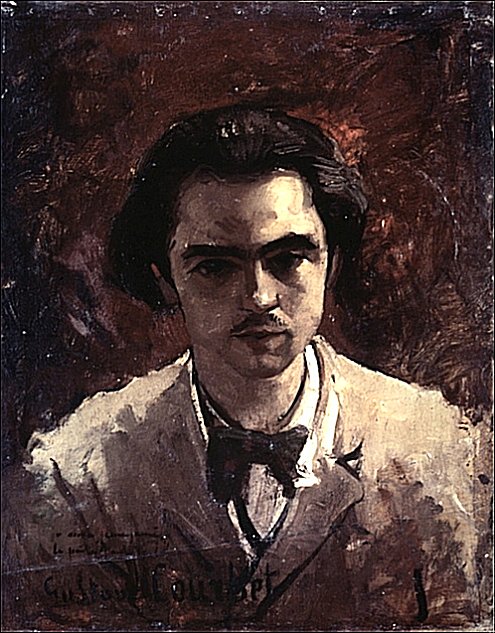
Paul Verlaine
(1844-1896)
Vous êtes calme, vous voulez un voeu discret
Vous êtes calme, vous voulez un voeu discret,
Des secrets à mi-voix dans l’ombre et le silence,
Le coeur qui se répand plutôt qu’il ne s’élance,
Et ces timides, moins transis qu’il ne paraît.
Vous accueillez d’un geste exquis telles pensées
Qui ne marchent qu’en ordre et font le moins de bruit.
Votre main, toujours prête à la chute du fruit,
Patiente avec l’arbre et s’abstient de poussées.
Et si l’immense amour de vos commandements
Embrasse et presse tout en sa sollicitude,
Vos conseils vont dicter aux meilleurs et l’étude
Et le travail des plus humbles recueillements.
Le pécheur, s’il prétend vous connaître et vous plaire,
Ô vous qui nous aimant si fort parliez si peu,
Doit et peut, à tout temps du jour comme en tout lieu,
Bien faire obscurément son devoir et se taire,
Se taire pour le monde, un pur sénat de fous,
Se taire sur autrui, des âmes précieuses,
Car nous taire vous plaît, même aux heures pieuses,
Même à la mort, sinon devant le prêtre et vous.
Donnez-leur le silence et l’amour du mystère,
Ô Dieu glorifieur du bien fait en secret,
À ces timides moins transis qu’il ne paraît,
Et l’horreur, et le pli des choses de la terre,
Donnez-leur, ô mon Dieu, la résignation,
Toute forte douceur, l’ordre et l’intelligence,
Afin qu’au jour suprême ils gagnent l’indulgence
De l’Agneau formidable en la neuve Sion,
Afin qu’ils puissent dire : ” Au moins nous sûmes croire ”
Et que l’Agneau terrible, ayant tout supputé,
Leur réponde : ” Venez, vous avez mérité,
Pacifiques, ma paix, et douloureux, ma gloire. ”
Paul Verlaine Poésie
fleursdumal.nl magazine
More in: *Archive Les Poètes Maudits, Archive U-V, Verlaine, Paul
.jpg)
Adriaan en de anderen
Een toekomstroman waarin de literatuur wordt gered
en het Huis van Oranje tot bloei komt
door Merel van der Gracht
twaalf
Een Rood-Gristelijke Republiek
‘Zijn we er bijna?’ vroeg Bodarius toen het pausmobiel door de Kinkerstraat karde. ‘In dit ding tocht het als de ziekte.’
‘Uw voorganger, wiens plaats op aarde u bekleedt, heeft meer geleden,’ zei Edgar Wolf, de pauselijke kleermaker die met een paar spelden de onderjurken van Bodarius aan elkaar hechtte, zodat zijn edele delen wat minder tocht vingen.
‘Voor wie doen we dit eigenlijk?’ vroeg Bodarius, die de lege straten zag.
‘Dat weet niemand,’ zei Edgar. ‘Het hoort bij het protocol. Een paus die in een land op bezoek komt, kust de grond en laat zich rondrijden om te wuiven.’
‘Maar niemand wuift terug,’ klaagde de paus.
‘Het zijn lauwe katholieken,’ zei Edgar. ‘En misschien zijn ze dat niet eens. Holland is toch een socialistische republiek?’
‘Rood-gristelijk,’ verbeterde Bodarius. ‘Maar die gristenen zijn een vloek voor Rome.’
‘We moeten veel voor hen bidden,’ zei coadjutor Everardus, vroeger hulpbisschop van het bisdom Roermond en nu hulpbisschop van het pauselijke bisdom Rome.
‘Ik zie jóu nooit bidden,’ antwoordde Bodarius.
‘Toch wel. Een paar keer per jaar. Soms, als ik niet kan slapen.’
‘Dat is weinig voor een hulpbisschop en pauselijk secretaris. Daar had de beoordelingscommissie naar moeten kijken toen ze jou voordroegen voor de bisschopswijding.’
‘Naar mijn bidgedrag heeft nooit iemand gevraagd. Ze wilden alleen maar weten of ik goed kon rekenen.’
‘Berekenen, bedoel je,’ zei coupeur Edgar.
‘Zwijg jij,’ zei Everardus. ‘Jij bidt nooit, zelfs niet als we naar bed gaan.’
‘Ik bid met mijn handen,’ zei Edgar. ‘Werken is ook bidden. Mijn moeder zaliger zei altijd dat een werkend mens hoger in de hemel komt dan een monnik die de hele dag loopt te smiespelen.’
‘Jouw moeder heeft gelijk,’ zei Bodarius. ‘De Kerk geeft de gewone gelovigen altijd gelijk. Hoe eenvoudiger van geloof, hoe beter de volgeling is.’
‘Precies,’ zei Edgar. ‘Ik weet ook niks. En dat vind ik prima. Als ik méér zou weten, zou ik net zo gek zijn als die lui die álles weten. Je ziet ze op tv. Ze kijken alsof ze peper in hun kont hebben en water in hun hoofd.’
‘Precies,’ zei de paus. ‘Vroeger was ik ook zo’n opgejaagd dier. Soms was ik op alle zenders tegelijk te zien. Dat was werken. Nu ik paus ben, hoef ik geen flikker meer te doen. Hee, Everardus, we zijn ons badeendje toch niet vergeten?’
‘Zeker niet, Heiligheid,’ zei Everardus. ‘Het zit in uw toilettas.’
Hoofdstuk 12 – Dinsdag 30 maart 2010 (vervolg woensdag)
.jpg)
Adriaan en de anderen door Merel van der Gracht
verschijnt op 7 mei 2010 bij Uitgeverij Compaan in Maassluis
ISBN: 978-94-903740-6-8, aantal pagina’s: 288, prijs: € 17,90
E-mail: merelvandergracht X kempis.nl ( X = @ )
kempis poetry magazine
More in: -Adriaan en de Anderen, Merel van der Gracht
.jpg)
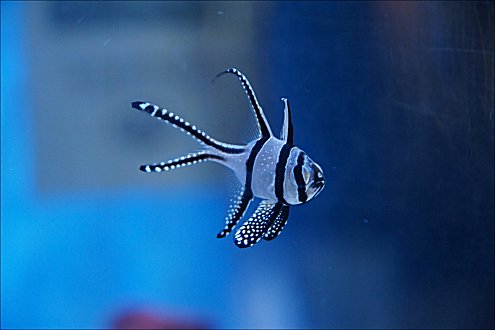

Willem Kloos
(1859-1938)
Van De Zee
Aan Frederik van Eeden
De Zee, de Zee klotst voort in eindelooze deining,
De Zee waarin mijn ziel zichzelf weerspiegeld ziet;
De Zee is als mijn Ziel in wezen en verschijning,
Zij is een levend Schoon en kent zichzelve niet.
Zij wischt zich zelven af in eeuwige verreining,
En wendt zich altijd om en keert weer waar zij vliedt,
Zij drukt zichzelven uit in duizenderlei lijning
En zingt een eeuwig-blij en eeuwig-klagend lied.
O, Zee was Ik als Gij in al Uw onbewustheid,
Dan zou ik eerst gehéél en gróót-gelukkig zijn;
Dan had ik eerst geen lust naar menschlijke belustheid
Op menschelijke vreugd en menschelijke pijn;
Dan wás mijn Ziel een Zee, en hare zelfgerustheid,
Zou, wijl Zij grooter is dan Gij, nóg grooter zijn.

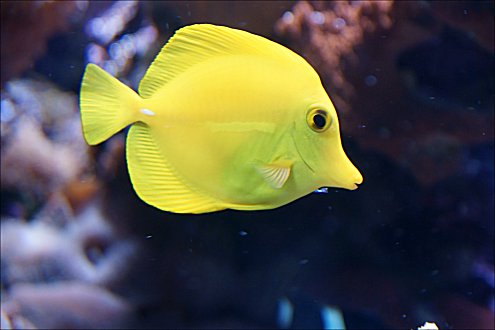
Hans Hermans Natuurdagboek – maart 2010
► Website Hans Hermans fotografie
Willem Kloos poetry
kempis poetry magazine
More in: Hans Hermans Photos, Kloos, Willem
.jpg)
Rainer Maria Rilke
(1875-1926)
Erinnerung
Und du wartest, erwartest das Eine,
das dein Leben unendlich vermehrt;
das Mächtige, Ungemeine,
das Erwachen der Steine,
Tiefen, dir zugekehrt.
Es dämmern im Bücherständer
die Bände in Gold und Braun;
und du denkst an durchfahrene Länder,
an Bilder, an die Gewänder
wiederverlorener Fraun.
Und da weißt du auf einmal: das war es.
Du erhebst dich, und vor dir steht
eines vergangenen Jahres
Angst und Gestalt und Gebet.
Rainer Maria Rilke: Erinnerung
fleursdumal.nl magazine
More in: Archive Q-R, Rilke, Rainer Maria
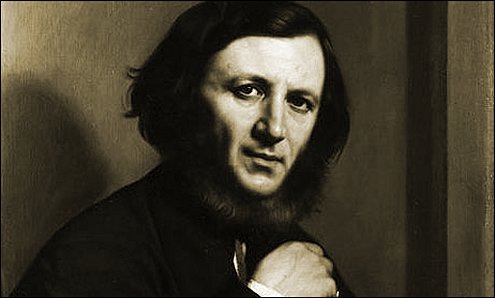
R o b e r t B r o w n i n g
(1812-1889)
Old Pictures in Florence
The morn when first it thunders in March,
The eel in the pond gives a leap, they say;
As I leaned and looked over the aloed arch
Of the villa-gate this warm March day,
No flash snapped, no dumb thunder rolled
In the valley beneath where, white and wide
And washed by the morning water-gold,
Florence lay out on the mountain-side.
River and bridge and street and square
Lay mine, as much at my beck and call,
Through the live translucent bath of air,
As the sights in a magic crystal ball.
And of all I saw and of all I praised,
The most to praise and the best to see
Was the startling bell-tower Giotto raised;
But why did it more than startle me?
Giotto, how, with that soul of yours,
Could you play me false who loved you so?
Some slights if a certain heart endures
Yet it feels, I would have your fellows know!
I’ faith, I perceive not why I should care
To break a silence that suits them best,
But the thing grows somewhat hard to bear
When I find a Giotto join the rest.
On the arch where olives overhead
Print the blue sky with twig and leaf
(That sharp-curled leaf which they never shed)
‘Twixt the aloes, I used to lean in chief,
And mark through the winter afternoons,
By a gift God grants me now and then,
In the mild decline of those suns like moons,
Who walked in Florence, besides her men.
They might chirp and chaffer, come and go
For pleasure or profit, her men alive–
My business was hardly with them, I trow,
But with empty cells of the human hive–
With the chapter-room, the cloister-porch,
The church’s apsis, aisle, or nave,
Its crypt, one fingers along with a torch,
Its face set full for the sun to shave.
Wherever a fresco peels and drops,
Wherever an outline weakens and wanes
Till the latest life in the painting stops,
Stands One whom each fainter pulse-tick pains;
One, wishful each scrap should clutch the brick,
Each tinge not wholly escape the plaster,
–A lion who dies of an ass’s kick,
The wronged great soul of an ancient Master.
For oh, this world and the wrong it does!
They are safe in heaven with their backs to it,
The Michaels and Rafaels, you hum and buzz
Round the works of, you of the little wit!
Do their eyes contract to the earth’s old scope,
Now that they see God face to face,
And have all attained to be poets, I hope?
‘Tis their holiday now, in any case.
Much they reck of your praise and you!
But the wronged great souls–can they be quit
Of a world where their work is all to do,
Where you style them, you of the little wit,
Old Master This and Early the Other,
Not dreaming that Old and New are fellows:
A younger succeeds to an elder brother,
Da Vincis derive in good time from Dellos.
And here where your praise might yield returns,
And a handsome word or two give help,
Here, after your kind, the mastiff girns
And the puppy pack of poodles yelp.
What, not a word for Stefano there,
Of brow once prominent and starry,
Called Nature’s Ape and the world’s despair
For his peerless painting? (See Vasari.)
There stands the Master. Study, my friends,
What a man’s work comes to! So he plans it,
Performs it, perfects it, makes amends
For the toiling and moiling, and then, ‘sic transit’!
Happier the thrifty blind-folk labor,
With upturned eye while the hand is busy,
Not sidling a glance at the coin of their neighbor!
‘Tis looking downward that makes one dizzy.
"If you knew their work you would deal your dole."
May I take upon me to instruct you?
When Greek Art ran and reached the goal,
Thus much had the world to boast ‘in fructu’–
The Truth of Man, as by God first spoken,
Which the actual generations garble,
Was re-uttered, and Soul (which Limbs betoken)
And Limbs (Soul informs) made new in marble.
So you saw yourself as you wished you were,
As you might have been, as you cannot be;
Earth here, rebuked by Olympus there:
And grew content in your poor degree
With your little power, by those statues’ godhead,
And your little scope, by their eyes’ full sway,
And your little grace, by their grace embodied,
And your little date, by their forms that stay.
You would fain be kinglier, say, than I am?
Even so, you will not sit like Theseus.
You would prove a model? The Son of Priam
Has yet the advantage in arms’ and knees’ use.
You’re wroth–can you slay your snake like Apollo?
You’re grieved–still Niobe’s the grander!
You live–there’s the Racers’ frieze to follow:
You die–there’s the dying Alexander.
So, testing your weakness by their strength,
Your meager charms by their rounded beauty,
Measured by Art in your breadth and length,
You learned–to submit is a mortal’s duty.
–When I say "you" ’tis the common soul,
The collective, I mean–the race of Man
That receives life in parts to live in a whole,
And grow here according to God’s clear plan.
Growth came when, looking your last on them all,
You turned your eyes inwardly one fine day
And cried with a start–What if we so small
Be greater and grander the while than they?
Are they perfect of lineament, perfect of stature?
In both, of such lower types are we
Precisely because of our wider nature;
For time, theirs–ours, for eternity.
Today’s brief passion limits their range;
It seethes with the morrow for us and more.
They are perfect–how else? they shall never change;
We are faulty–why not? we have time in store.
The Artificer’s hand is not arrested
With us; we are rough-hewn, nowise polished;
They stand for our copy, and, once invested
With all they can teach, we shall see them abolished.
‘Tis a life-long toil till our lump be leaven–
The better! What’s come to perfection perishes.
Things learned on earth we shall practice in heaven:
Works done least rapidly, Art most cherishes.
Thyself shalt afford the example, Giotto!
Thy one work, not to decrease or diminish,
Done at a stroke, was just (was it not?) "O!"
Thy great Campanile is still to finish.
Is it true that we are now, and shall be hereafter,
But what and where depend on life’s minute?
Hails heavenly cheer or infernal laughter
Our first step out of the gulf or in it?
Shall Man, such step within his endeavor,
Man’s face, have no more play and action
Than joy which is crystallized forever,
Or grief, an eternal petrifaction?
On which I conclude, that the early painters,
To cries of "Greek Art and what more wish you?"–
Replied, "To become now self-acquainters,
And paint man, man, whatever the issue!
Make new hopes shine through the flesh they fray,
New fears aggrandize the rags and tatters:
To bring the invisible full into play!
Let the visible go to the dogs–what matters?"
Give these, I exhort you, their guerdon and glory
For daring so much, before they well did it.
The first of the new, in our race’s story,
Beats the last of the old; ’tis no idle quiddit.
The worthies began a revolution,
Which if on earth you intend to acknowledge,
Why, honor them now! (ends my allocution)
Nor confer your degree when the folk leave college.
There’s a fancy some lean to and others hate–
That, when this life is ended, begins
New work for the soul in another state,
Where it strives and gets weary, loses and wins:
Where the strong and the weak, this world’s congeries,
Repeat in large what they practiced in small,
Through life after life in unlimited series;
Only the scale’s to be changed, that’s all.
Yet I hardly know. When a soul has seen
By the means of Evil that Good is best,
And, through earth and its noise, what is heaven’s serene–
When our faith in the same has stood the test–
Why, the child grown man, you burn the rod,
The uses of labor are surely done;
There remaineth a rest for the people of God;
And I have had troubles enough, for one.
But at any rate I have loved the season
Of Art’s spring-birth so dim and dewy;
My sculptor is Nicolo the Pisan,
My painter–who but Cimabue?
Nor ever was a man of them all indeed,
From these to Ghiberti and Ghirlandajo,
Could say that he missed my critic-meed.
So, now to my special grievance–heigh-ho!
Their ghosts still stand, as I said before,
Watching each fresco flaked and rasped,
Blocked up, knocked out, or whitewashed o’er:
–No getting again what the church has grasped!
The works on the wall must take their chance;
"Works never conceded to England’s thick clime!"
(I hope they prefer their inheritance
Of a bucketful of Italian quicklime.)
When they go at length, with such a shaking
Of heads o’er the old delusion, sadly
Each master his way through the black streets taking,
Where many a lost work breathes though badly–
Why don’t they bethink them of who has merited?
Why not reveal while their pictures dree
Such doom, how a captive might be out-ferreted?
Why is it they never remember me?
Not that I expect the great Bigordi,
Nor Sandro to hear me, chivalric, bellicose;
Nor the wronged Lippino; and not a word I
Say of a scrap of Fra Angelico’s;
But are you too fine, Taddeo Gaddi,
To grant me a taste of your intonaco,
Some Jerome that seeks the heaven with a sad eye?
Not a churlish saint, Lorenzo Monaco?
Could not the ghost with the close red cap,
My Pollajolo, the twice a craftsman,
Save me a sample, give me the hap
Of a muscular Christ that shows the draftsman?
No Virgin by him the somewhat petty,
Of finical touch and tempera crumbly–
Could not Alesso Baldovinetti
Contribute so much, I ask him humbly?
Margheritone of Arezzo,
With the grave-clothes garb and swaddling barret
(Why purse up mouth and beak in a pet so,
You bald old saturnine poll-clawed parrot?)
Not a poor glimmering Crucifixion,
Where in the foreground kneels the donor?
If such remain, as is my conviction,
The hoarding it does you but little honor.
They pass; for them the panels may thrill,
The tempera grow alive and tinglish;
Their pictures are left to the mercies still
Of dealers and stealers, Jews and the English,
Who, seeing mere money’s worth in their prize,
Will sell it to somebody calm as Zeno
At naked High Art, and in ecstasies
Before some clay-cold vile Carlino!
No matter for these! But Giotto, you,
Have you allowed, as the town-tongues babble it–
Oh, never! it shall not be counted true–
That a certain precious little tablet
Which Buonarroti eyed like a lover–
Was buried so long in oblivion’s womb
And, left for another than I to discover,
Turns up at last! and to whom?–to whom?
I, that have haunted the dim San Spirito,
(Or was it rather the Ognissanti?)
Patient on altar-step planting a weary toe!
Nay, I shall have it yet! ‘Detur amanti!’
My Koh-i-noor–or (if that’s a platitude)
Jewel of Giamschid, the Persian Sofi’s eye;
So, in anticipative gratitude,
What if I take up my hope and prophesy?
When the hour grows ripe, and a certain dotard
Is pitched, no parcel that needs invoicing,
To the worse side of the Mont Saint Gothard,
We shall begin by way of rejoicing;
None of that shooting the sky (blank cartridge),
Nor a civic guard, all plumes and lacquer,
Hunting Radetzky’s soul like a partridge
Over Morello with squib and cracker.
This time we’ll shoot better game and bag ’em hot–
No mere display at the stone of Dante,
But a kind of sober Witanagemot
(Ex: "Casa Guidi," ‘quod videas ante’)
Shall ponder, once Freedom restored to Florence,
How Art may return that departed with her.
Go, hated house, go each trace of the Loraine’s,
And bring us the days of Orgagna hither!
How we shall prologuize, how we shall perorate,
Utter fit things upon art and history,
Feel truth at blood-heat and falsehood at zero rate,
Make of the want of the age no mystery;
Contrast the fructuous and sterile eras,
Show–monarchy ever its uncouth cub licks
Out of the bear’s shape into Chimaera’s,
While Pure Art’s birth is still the republic’s.
Then one shall propose in a speech (curt Tuscan,
Expurgate and sober, with scarcely an "issimo,")
To end now our half-told tale of Cambuscan,
And turn the bell-tower’s alt_ to altissimo:
And find as the beak of a young beccaccia
The Campanile, the Duomo’s fit ally,
Shall soar up in gold full fifty braccia,
Completing Florence, as Florence, Italy.
Shall I be alive that morning the scaffold
Is broken away, and the long-pent fire,
Like the golden hope of the world, unbaffled
Springs from its sleep, and up goes the spire
While "God and the People" plain for its motto,
Thence the new tricolor flaps at the sky?
At least to foresee that glory of Giotto
And Florence together, the first am I!
.jpg)
Robert Browning poetry
kempis poetry magazine
More in: Browning, Robert

Adriaan en de anderen
Een toekomstroman waarin de literatuur wordt gered
en het Huis van Oranje tot bloei komt
door Merel van der Gracht
elf
Staatsbezoek van paus Antonius Bodarius
Te voet op weg naar de supermarkt waar ze elke dag een paar uur werkte, net als een hele rits meisjes van Marokkaanse en Jordaanse afkomst, dacht Naomi al aan de ingrediënten voor een heerlijke soep. Lekkere soep zou ze koken voor Luud en voor iedereen in het woonblok die wilde mee-eten. Soep was liefde. Tjeepie had volkomen gelijk.
In de buurt van het Tropenmuseum werd ze staande gehouden door politie. Met een vaartje kwam er een stoet luxeauto’s voorbij, voorafgegaan door militairen op motors. In een witte auto met veel glas, midden in de stoet, stond iemand in een witte jurk naar de mensen te wuiven.
‘Wie is dat?’ vroeg Naomi aan een agent.
‘De paus,’ antwoordde de agent. ‘Hij is op staatsbezoek. Morgen wordt hij door de koningin-regentes ontvangen.’
De stoet verdween richting Artis, waar een aantal Volendammers, het meest roomse volkje van Nederland met de grootste missionarisdichtheid ter wereld, in klederdracht rondsprong en met palmtakken zwaaiend de intocht van Jezus in Jeruzalem naspeelde. Jezus droeg alvast de doornenkroon op zijn hoofd, hoewel hij die in het echt pas een week later te dragen kreeg.
Naomi herinnerde zich dat een jaar geleden een Nederlander tot paus was gekozen. Paus Antonius Bodarius. Een vriend van Adriaan nog wel. Het verbaasde haar dat kerkelijke hoogwaardigheidsbekleders nog steeds door de staat ontvangen werden, terwijl premier Mandarijn er juist naar streefde Kerk en staat in alles te scheiden. Maar misschien was het met de paus anders: tenslotte was hij nog steeds hoofd van het Vaticaan, een ministaat. Bevriend staatshoofd dus. En natuurlijk, het was een Nederlander die het ver had gebracht. De ontvangst was pure publiciteit voor het Nederlandse regime.
Afijn, Adriaan zou er wel meer van weten. Ze wipte even bij hem aan.
‘Je komt net op tijd,’ zei Adriaan. ‘Je mag met me mee op bezoek bij Bodarius.’
‘Je bedoelt bij de paus?’ vroeg ze verrast. ‘Ik?’
‘Ja, jij,’ zei Adriaan, nog steeds ontroerd door de uitnodiging. ‘Bodarius logeert in Kras. Hij heeft me uitgenodigd voor zijn partijtje. Partners mogen mee.’
‘En Deesje dan?’
‘Deesje gaat ook mee. Zo’n poesje telt niet als persoon maar als paraferna. Bovendien, Bodarius houdt van poezen. De paus kijkt niet zo nauw. Hij schijnt zelfs Movo van Brabant te hebben uitgenodigd, die halve Italiaan. Bodarius is zijn Nederlandse vrienden nog niet vergeten.’
‘Movo?’ vroeg Naomie verrast. ‘Dan zullen ze hem bij het Leger des Heils toch eerst flink moeten wassen. Toen ik hem laatst zag, zat zijn haar vol zilvervisjes.’
‘Niet verwonderlijk. Hij sjouwt altijd rond met een kar vol oud papier.’
‘Goed, ik ga mee,’ zei Naomi. ‘Maar eerst moet ik nog werken en soep koken.’
‘Je hebt nog een halve dag de tijd hoor. Om acht uur haal ik je op met de taxi. We moeten niet de eersten zijn. Alleen de hongerigen en de mindere goden van de stad staan vooraan als de deur opengaat. Het is niet anders dan vroeger bij het boekenbal.’
‘Ik zorg ervoor dat we gegeten hebben,’ zei Naomi
Ze ging als een haas naar haar werk. Het was al twee uur. Toch al wat laat.
Ze besloot het koken tot morgen uit te stellen. Er waren dringender zaken. Tenslotte moest ze nog drie uur werken in de supermarkt. Kwam ze niet opdagen, dan werd ze zeker ontslagen.
Ontvangen worden in zo’n voornaam gezelschap, daar hoorde gepaste kleding bij. En die had ze niet. Dus besloot ze nog even bij de Erven Bruintjes binnen te stappen voor een geschikte avondjurk. Het mocht wat kosten.
Bij de Erven Bruintjes in de P.C. Hooftstraat keken ze wel op. Meisjes als Naomi kwamen nooit verder dan de etalages aan de straatkant. Binnen was eigenlijk alleen maar plaats voor de minivrouwtjes van Ajaxspelers en deftige dames uit Het Gooi.
Naomi paste een dozijn kleertjes en vond een paars met zilver afgebiesd jurkje dat haar perfect paste, een beetje frivool, het liet een beetje veel bloot. Maar de kleur paste perfect bij het roomse theater dat haar te wachten stond.
Op weg naar de supermarkt zag ze dat de stad steeds meer in een fort aan het veranderen was. Op alle straathoeken stonden getraliede politiebusjes, en grimmig behelmde agenten met dode ogen. Niet een van hen vertrok een spier toen Naomi voorbij tripte, hoewel ze toch een perfect exemplaar van de menselijke soort was. Het waren kerels verpakt in leer, maar zonder kloten.
Hoofdstuk 11 – Maandag 29 maart 2010 (vervolg dinsdag)
.jpg)
Adriaan en de anderen door Merel van der Gracht
verschijnt op 7 mei 2010 bij Uitgeverij Compaan in Maassluis
ISBN: 978-94-903740-6-8, aantal pagina’s: 288, prijs: € 17,90
E-mail: merelvandergracht X kempis.nl (X = @ )
kempis poetry magazine
More in: -Adriaan en de Anderen, Merel van der Gracht
.jpg)
W i l l i a m S h a k e s p e a r e
(1564-1616)
T H E S O N N E T S
30
When to the sessions of sweet silent thought,
I summon up remembrance of things past,
I sigh the lack of many a thing I sought,
And with old woes new wail my dear time’s waste:
Then can I drown an eye (unused to flow)
For precious friends hid in death’s dateless night,
And weep afresh love’s long since cancelled woe,
And moan th’ expense of many a vanished sight.
Then can I grieve at grievances foregone,
And heavily from woe to woe tell o’er
The sad account of fore-bemoaned moan,
Which I new pay as if not paid before.
But if the while I think on thee (dear friend)
All losses are restored, and sorrows end.
![]()
kempis poetry magazine
More in: -Shakespeare Sonnets
.jpg)
Gérard de Nerval
(1808-1855)
Le Temps
Ode
I
Le Temps ne surprend pas le sage ;
Mais du Temps le sage se rit,
Car lui seul en connaît l’usage ;
Des plaisirs que Dieu nous offrit,
Il sait embellir l’existence ;
Il sait sourire à l’espérance,
Quand l’espérance lui sourit.
II
Le bonheur n’est pas dans la gloire,
Dans les fers dorés d’une cour,
Dans les transports de la victoire,
Mais dans la lyre et dans l’amour.
Choisissons une jeune amante,
Un luth qui lui plaise et l’enchante ;
Aimons et chantons tour à tour !
III
” Illusions ! vaines images ! ”
Nous dirons les tristes leçons
De ces mortels prétendus sages
Sur qui l’âge étend ses glaçons ; ”
” Le bonheur n’est point sur la terre,
Votre amour n’est qu’une chimère,
Votre lyre n’a que des sons ! ”
IV
Ah ! préférons cette chimère
A leur froide moralité ;
Fuyons leur voix triste et sévère ;
Si le mal est réalité,
Et si le bonheur est un songe,
Fixons les yeux sur le mensonge,
Pour ne pas voir la vérité.
V
Aimons au printemps de la vie,
Afin que d’un noir repentir
L’automne ne soit point suivie ;
Ne cherchons pas dans l’avenir
Le bonheur que Dieu nous dispense ;
Quand nous n’aurons plus l’espérance,
Nous garderons le souvenir.
VI
Jouissons de ce temps rapide
Qui laisse après lui des remords,
Si l’amour, dont l’ardeur nous guide,
N’a d’aussi rapides transports :
Profitons de l’adolescence,
Car la coupe de l’existence
Ne pétille que sur ses bords !
(1824)
Gérard de Nerval: Le Temps
KEMP=MAG kempis poetry magzine
More in: *Archive Les Poètes Maudits, Archive M-N, Nerval, Gérard de, Nerval, Gérard de
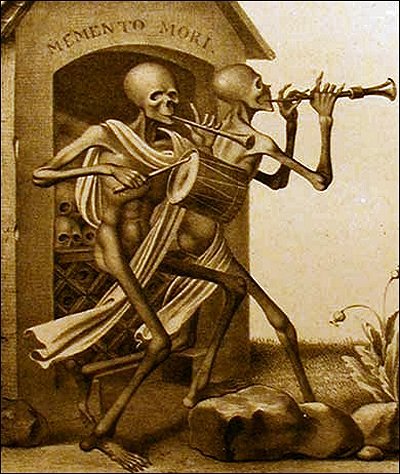
Thomas a Kempis
(1380-1471)
De navolging van Christus
Boek 2, Hoofdstuk 3
Over de vreedzame mens
1. Stel uzelf eerst in vrede, en dan zult gij anderen ook tot vrede kunnen stichten.
Een vredelievend mens doet meer goed dan een groot geleerde.
Een driftig mens maakt van het goed kwaad en gelooft licht aan het kwaad.
Een goed, vreedzaam mens keert alles ten goede.
Die wel tevreden is, heeft van niemand kwaad vermoeden, maar die slecht tevreden en ontroerd is, wordt door veel kwade vermoedens gekweld; hij is niet gerust, en hij verontrust anderen.
Hij zegt dikwijls wat hij niet moest zeggen, en laat achterwege wat hij zou moeten doen.
Hij let op wat de anderen verplicht zijn te doen, en hij verzuimt zijn eigen plicht.
Heb dan eerst ijver voor uzelf, en dan zult gij met reden ook uw naaste tot ijver kunnen aansporen.
2. Gij weet uw eigen daden wel te verschonen, en de verontschuldigingen van anderen wilt gij niet aannemen.
Het ware rechtvaardiger uzelf te beschuldigen, en uw broeder te verschonen.
Wilt gij dat men uw gebreken verdrage, verdraag die van anderen.
Zie hoe ver gij nog van de ware liefde en ootmoed verwijderd zijt, waardoor men zich nooit vergramt of nooit verontwaardigd is dan tegen zichzelf.
Het is geen grote deugd, met goede en zachtmoedige mensen vreedzaam te leven, dit behaagt natuurlijk aan alle mensen, want iedereen is gaarne in vrede en bemint ook het meest die met hem overeenkomen.
Maar in vrede kunnen leven met stuurse, boosaardige en ongeregelde mensen, of met die, welke ons dwarsbomen, dit is een grote gave en een grootmoedig en hoogst loffelijk bedrijf.
3. Daar zijn er, die met zichzelf, en ook met anderen in vrede zijn.
En daar zijn er, die zelf geen vrede hebben, en die anderen in vrede niet laten; zij zijn voor de anderen lastig, maar nog veel lastiger voor zichzelf.
En daar zijn er, die zichzelf in vrede behouden, en ook anderen trachten tot vrede terug te brengen.
Nochtans geheel onze vrede, in dit ellendig leven, bestaat in meer ootmoedige lijdzaamheid dan in ‘t niet gevoelen van tegenheden.
Wie best weet te lijden, zal de meeste vrede hebben; hij is overwinnaar van zichzelf, hij is meester van de wereld, vriend van Jezus Christus en erfgenaam van de hemel.
Oefening
Neemt men de grondregel van de schrijver aan dat de ware vrede eerder bestaat in de ootmoedige onderwerping aan wat ons tegenstaat, dan in geen tegenstand te ontmoeten, zo moeten wij besluiten, de vrede in de tegenspraak en de rust in de onheilen te zoeken, en zulks met al het kwaad, dat men ons kan aandoen of dat men van ons zou kunnen zeggen, met een geduld en een zoetaardigheid te verdragen, die alle vervolging overwint. Een ziel, die waarlijk ootmoedig is, weet op niemand, dan op haarzelf iets te zeggen; zij verontschuldigt anderen en beschuldigt zichzelf, en zij is nooit vergramd dan op haarzelf. Mijn voornemen is dus, in vrede te leven -met God: door Hem in alles gehoorzaam te wezen; – met mijn evennaaste: door niemands gedrag te berispen, en mij met de zaken van anderen niet te bemoeien; – met mijzelf: door in alle gelegenheden de neigingen en de tegenstrijdigheden van mijn hart te bevechten en te overwinnen.
Gebed
Heer, Gij hebt door uw profeet gezegd: Betracht de vrede en jaag hem na, dat is te zeggen laat niet na hem te zoeken tot gij die gevonden zult hebben. Niemand dan Gij, o Jezus, kan mij de vrede geven, aangezien Gij alleen mij de vrede met uw Vader op het kruis verschaft en mij met Hem verzoend hebt. Reeds lang heb ik getracht met U, met mijn naaste en met mijzelf in vrede te leven; maar mijn ontrouw, gevoeligheid en haastigheid – die gedurige oorzaken van de onrust van mijn ziel – beletten mij die vrede te genieten. O Zaligmaker, die de tempeesten hebt gestild, en die over de winden der lucht en over de baren der zee gebiedt, stil ook de bewegingen van mijn hart, dat in U alleen een ware rust kan vinden. Maak, dat het in alles aan uw heilige wil onderworpen zij, en dat het de vrede en de rust vinde in alles te doen, in alles te lijden, wat Gij wilt. Amen.
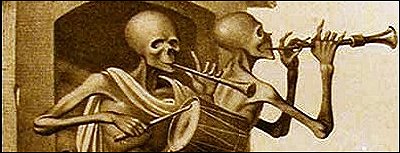
Thomas a Kempis:
Over de vreedzame mens
kemp=mag poetry magazine
More in: Archive K-L, MONTAIGNE, Thomas a Kempis
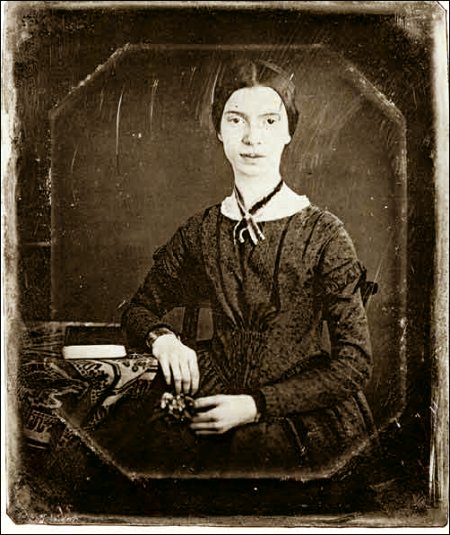
E m i l y D i c k i n s o n
(1830-1886)
There came a day
There came a day – at Summer’s full –
Entirely for me –
I thought that such were for the Saints –
Where Resurrections – be –
The sun – as common – went abroad –
The flowers – accustomed – blew,
As if no soul – that solstice passed –
Which maketh all things – new –
The time was scarce profaned – by speech –
The falling of a word
Was needless – as at Sacrament –
The Wardrobe – of our Lord!
Each was to each – the sealed church –
Permitted to commune – this time –
Lest we too awkward show
At Supper of “the Lamb.”
The hours slid fast – as hours will –
Clutched tight – by greedy hands –
So – faces on two Decks look back –
Bound to opposing lands.
And so, when all the time had leaked,
Without external sound,
Each bound the other’s Crucifix –
We gave no other bond –
Sufficient troth – that we shall rise,
Deposed – at length the Grave –
To that new marriage –
Justified – through Calvaries – of Love!
.jpg)
Emily Dickinson poetry
k e m p i s p o e t r y m a g a z i n e
More in: Archive C-D, Dickinson, Emily
Thank you for reading Fleurs du Mal - magazine for art & literature